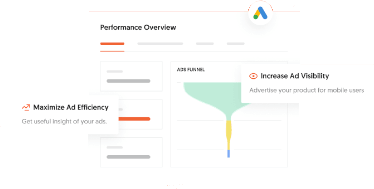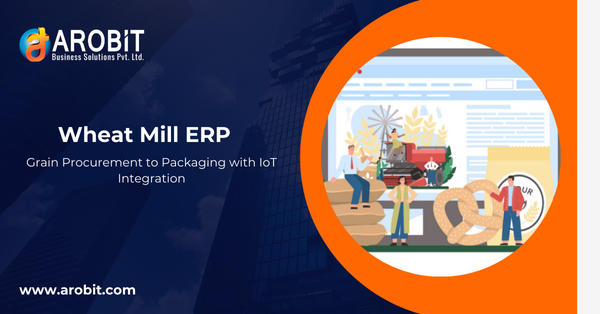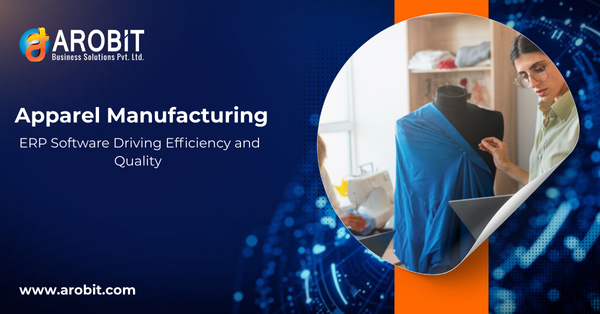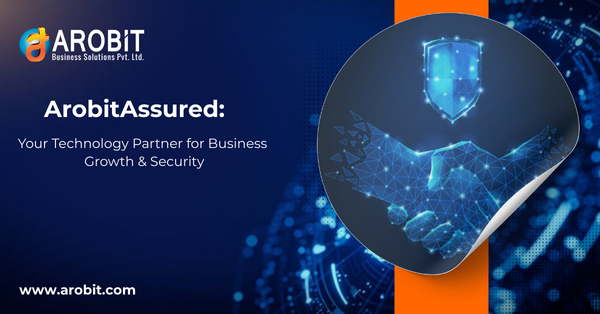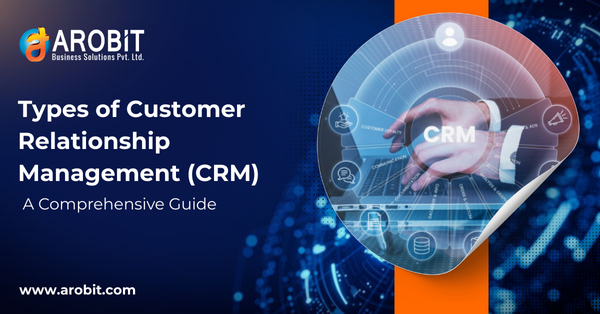While everyone debates whether AI will replace jobs, smart businesses are using it to make their workforce 10x more productive. The real game-changer isn't replacing people—it's empowering them with the right tools. And at the heart of this transformation? Enterprise Resource Planning (ERP) systems are becoming smarter, more integrated, and absolutely essential for business survival.
Organizations across manufacturing, services, HR, procurement, supply chains, and customer support are discovering that AI integration isn't optional anymore—it's survival. Companies using AI-powered ERP systems aren't just transforming their operations; they're creating competitive advantages that leave their competitors scrambling to catch up.
The ERP Market Reality
The ERP software market tells an impressive growth story—valued at $64.83 billion in 2024, it's expected to nearly double to $123.41 billion by 2030, with an annual growth rate of 11.7%. This isn't just growth—it's a revolution driven by businesses realizing that disconnected systems are killing their productivity.
But here's the challenge: with so many types of ERP systems available, how do you choose the right one? If you're feeling overwhelmed by the options, you're not alone. This guide will walk you through every major ERP type, its advantages and disadvantages, and most importantly, how to make the right choice for your business.
What Are ERP Systems and Their Core Concept?
Think of ERP systems as the central nervous system of your business. Enterprise Resource Planning platforms integrate all your core business functions—finance, HR, supply chain, inventory, and CRM—into one unified system. Instead of juggling multiple software solutions that don't talk to each other, ERP gives you a single source of truth.
The magic happens through automation, data consolidation, and real-time insights that help you make informed decisions quickly. But not all ERP systems are created equal. They can be categorized based on deployment methods, functionality, and industry-specific requirements.
How Do ERP Systems Work?
Modern ERP systems serve one primary purpose: eliminating operational chaos. They achieve this through several key features:
- Integrated System Architecture: All modules work together seamlessly.
- Unified Database: Single repository for all business data
- Real-time Insights: Instant access to current business metrics
- Universal App Support: Integration capabilities with existing tools
- Common User Interface: Consistent experience across all modules
- Flexible Deployment: Options for on-premise, cloud, or hybrid setups
The system collects data from every business process, analyzes it in real-time, and presents actionable insights through comprehensive reporting dashboards. This gives you a 360-degree view of your business performance.
Quick Reference: ERP System Comparison
Detailed Analysis of ERP System Types
On-Premise ERP Systems
On-premise ERP systems are installed directly on your company's servers and infrastructure. You own, control, and maintain everything internally.
Advantages:
- Complete control over data security and compliance
- Extensive customization possibilities to match unique workflows
- No dependency on internet connectivity for core operations
Disadvantages:
- High upfront capital investment in hardware and software
- Requires dedicated IT staff for maintenance and updates
- Limited scalability without significant infrastructure upgrades
Examples: SAP ECC, Oracle E-Business Suite, Microsoft Dynamics GP
Best Suited For: Large enterprises with complex compliance requirements, companies handling sensitive data, and organizations with substantial IT resources.
Cloud ERP Systems
Cloud ERP systems are hosted on the vendor's servers and accessed through web browsers. This is where ERP in cloud computing truly shines, offering businesses unprecedented flexibility and accessibility.
Advantages:
- Minimal upfront investment with subscription-based pricing
- Automatic software updates and security patches
- Easy scalability as your business grows
Disadvantages:
- Ongoing subscription costs can accumulate over time.
- Limited customization compared to on-premise solutions
- Dependency on internet connectivity and vendor reliability
Examples: NetSuite, Salesforce, Workday, Microsoft Dynamics 365
Best Suited For: Small to medium businesses, startups, companies with remote teams, and organizations prioritizing rapid deployment.
Hybrid ERP Systems
Hybrid ERP combines the best of both worlds, allowing you to keep sensitive data on-premise while leveraging cloud capabilities for other functions.
Advantages:
- Flexibility to choose deployment method per module
- Gradual migration path from on-premise to cloud
- Optimized cost structure based on specific needs
Disadvantages:
- Complex integration between on-premise and cloud components
- Requires expertise in both deployment models
- Potential security vulnerabilities in data transfer
Examples: SAP S/4HANA Cloud, Oracle Fusion Cloud, Microsoft Dynamics 365 Business Central
Best Suited For: Medium to large enterprises transitioning to the cloud, companies with mixed security requirements, and organizations with existing on-premise investments.
Open-Source ERP Systems
Open-source ERP systems provide access to source code, allowing unlimited customization and modification.
Advantages:
- No licensing fees, only implementation and maintenance costs
- Complete customization freedom with source code access
- Strong community support and regular updates
Disadvantages:
- Requires technical expertise for customization and maintenance
- Limited vendor support compared to commercial solutions
- Potential security risks if not properly maintained
Examples: Odoo, ERPNext, Apache OFBiz, xTuple
Best Suited For: Tech-savvy small businesses, startups with development resources, and companies with unique processes that require extensive customization.
Custom-Built ERP Systems
Custom ERP systems are built from scratch by an ERP software development company to meet your exact business requirements.
Advantages:
- Perfect alignment with unique business processes
- Competitive advantage through proprietary features
- Complete ownership and control over intellectual property
Disadvantages:
- Highest development costs and longest implementation timeline
- Requires ongoing development resources for updates
- Risk of vendor dependency during the development phase
Best Suited For: Large enterprises with unique business models, companies in niche industries, and organizations with complex regulatory requirements.
Industry-Specific vs. Generic ERP Systems
While generic ERP systems offer broad functionality focused on financial management and cost-effectiveness, industry-specific solutions provide pre-configured workflows tailored to sector requirements.
Industry-specific ERP systems excel in:
- Manufacturing ERP Systems: Production planning, quality control, supply chain optimization
- Healthcare ERP Systems: Patient management, regulatory compliance, medical inventory
- Retail ERP Systems: Point-of-sale integration, inventory management, customer analytics
- Non-Profit ERP Systems: Grant management, donor tracking, compliance reporting
- Education ERP Systems: Student information management, academic planning, and financial aid
The key advantage of industry-specific solutions is reduced implementation time through preconfigured workflows that understand your business context from day one.
How to Choose the Right ERP System
Selecting the right type of ERP system feels overwhelming, but following a structured approach simplifies the decision:
1. Define Your Business Goals
Start with clear objectives: What problems are you solving? Are you looking to reduce costs, improve efficiency, or enable growth?
2. Assess Deployment Needs
Consider your IT resources, security requirements, and budget constraints. Do you need on-premise control or cloud flexibility?
3. Consider Industry Fit
Evaluate whether generic functionality suffices or if you need industry-specific features. When researching options, consider established ERP software companies in India that understand local business requirements.
4. Evaluate Vendor Support
Look for vendors with strong implementation support, training programs, and ongoing maintenance capabilities.
5. Budget and ROI Analysis
Consider total cost of ownership, not just upfront costs. Include implementation, training, and maintenance expenses.
6. Scalability Requirements
Choose a system that can grow with your business without requiring complete replacement. For unique requirements, custom ERP software solutions offer the ultimate scalability.
7. Integration Capabilities
Ensure the ERP can integrate with your existing tools and future technology investments.
Why ERP Consulting Services Are Essential
With dozens of options and complex technical considerations, choosing the right ERP system can feel overwhelming. This is where expert ERP consulting services become invaluable.
Professional consultants provide:
- System Evaluation and Selection: Objective assessment of your needs and available options
- Customization and Configuration: Tailoring the system to your specific workflows
- Implementation Support: Managing the entire deployment process
- Training and Change Management: Ensuring smooth user adoption
- Post-Implementation Support: Ongoing optimization and troubleshooting
The best ERP software in India often comes with comprehensive consulting services that understand local business practices and regulatory requirements.
Frequently Asked Questions
What is the most common ERP system?
Cloud-based ERP systems are becoming the most common choice, with solutions like NetSuite, Microsoft Dynamics 365, and SAP leading the market due to their accessibility and cost-effectiveness.
What are the two main ERP systems?
The two primary deployment models are on-premise ERP (installed locally) and cloud ERP (hosted remotely). Each serves different business needs and preferences.
What are the different types of ERP maintenance?
ERP maintenance includes corrective maintenance (bug fixes), adaptive maintenance (updates for changing requirements), and perfective maintenance (performance improvements and new features).
Making Your ERP Decision
Choosing the right ERP system isn't just about selecting software—it's about transforming your business operations for long-term success. Whether you opt for cloud flexibility, on-premise control, or a custom solution, the key is making an informed decision that aligns with your business goals.
Remember, the best ERP system is the one that fits your specific needs, budget, and growth plans. Don't get caught up in feature comparisons; focus on how each solution solves your actual business problems.
At Arobit Business Solutions, we've witnessed firsthand how the right ERP choice can transform businesses from struggling with operational chaos to achieving streamlined efficiency. Over the past decade, we've helped countless organizations across various industries implement ERP solutions that not only solve immediate problems but also position them for sustainable growth. Our approach isn't about pushing the most expensive solution—it's about finding the perfect fit for your unique business needs.
Whether you're a startup looking for your first ERP system or an established enterprise ready to upgrade, the journey doesn't have to be overwhelming. With proper guidance, thorough planning, and the right implementation partner, your ERP transformation can become the catalyst that takes your business to the next level.



